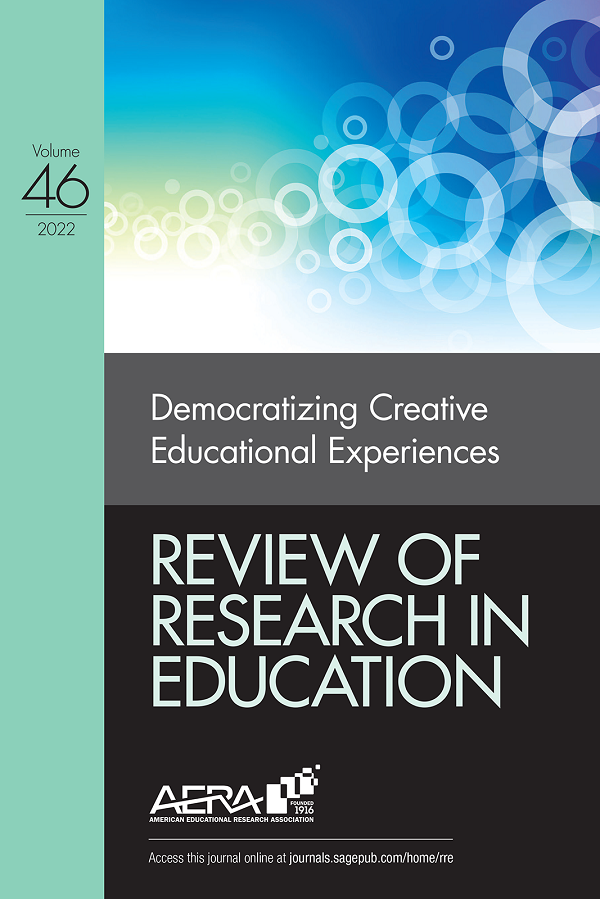创造性作为一种种族化和消融的科学对象:从正义导向的未来中解脱民主动力
IF 2.4
1区 教育学
Q1 EDUCATION & EDUCATIONAL RESEARCH
引用次数: 2
摘要
在这篇文献综述中,我们关注了培养创造力和鼓励更大包容性的善意希望的一些方式,这些方式也可能依赖于有问题的前提,这些前提有助于具体化排他性逻辑和实践。更具体地说,我们将历史和批判性地审视创造力研究——尽管经常明确地努力扩大创造力的概念,包括边缘化人群和民主化教育——在70多年的科学研究、定义和/或培养创造力的努力中,如何以不同的方式重新激活种族化和功能化话语。在我们强调过去和现在的设计之间的关系时,我们注意到更多有害的紧张和关注,这些紧张和关注继续对学术、研究、政策和实践产生影响。本文章由计算机程序翻译,如有差异,请以英文原文为准。
Creativity as a Racializing and Ableizing Scientific Object: Disentangling the Democratic Impulse From Justice-Oriented Futures
In this review of literature, we attend to some of the ways that well-intentioned hopes for fostering creativity and encouraging greater inclusion may also rely on problematic premises that work to reify exclusionary logics and practices. More specifically, we historicize and critically examine how creativity studies—often despite explicit efforts to broaden notions of creativity, include marginalized populations, and democratize education—have differently reanimated racializing and ableizing discourses over seven decades of efforts to scientifically study, define, and/or cultivate creativity. In our emphasis on the relationship between past and present designs, we attend to more pernicious tensions and concerns that continue to hold implications for scholarship, research, policy, and practice.
求助全文
通过发布文献求助,成功后即可免费获取论文全文。
去求助
来源期刊

Review of Research in Education
EDUCATION & EDUCATIONAL RESEARCH-
CiteScore
15.70
自引率
0.00%
发文量
14
期刊介绍:
Review of Research in Education (RRE), published annually since 1973 (approximately 416 pp./volume year), provides an overview and descriptive analysis of selected topics of relevant research literature through critical and synthesizing essays. Articles are usually solicited for specific RRE issues. There may also be calls for papers. RRE promotes discussion and controversy about research problems in addition to pulling together and summarizing the work in a field.
 求助内容:
求助内容: 应助结果提醒方式:
应助结果提醒方式:


